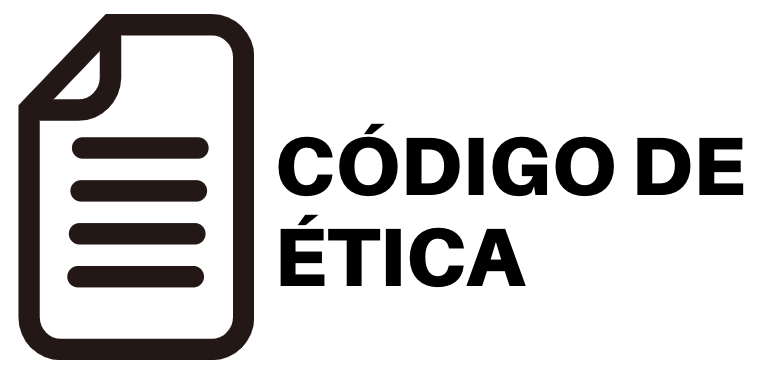Reading comprehension in higher basic education students: Case study of an educational unit in the Cuenca canton
DOI:
https://doi.org/10.33936/psidial.v2i2.6092Keywords:
reading comprehension, reading, PISA, motivationAbstract
Comprehension is the goal of reading and in adolescents, it is more necessary since they require access to complex content. According to the PISA 2019 report, 15-year-old students in Ecuador reach a minimum level of reading literacy skills, which means that they can answer tasks in which they must locate direct information and make simple inferences. The objective of this research was to determine the levels of reading comprehension in 8th-year students of basic general education at the San Francisco Educational Unit, Cuenca-Ecuador. The study followed a quantitative approach with a descriptive scope, cross-sectional and non-experimental design. Fifty-two students from 12 to 14 years old from the morning and afternoon sessions of the mentioned educational institution participated. The students were given the reading comprehension test of the EVALEC-8 instrument (Battery to assess reading competence) which lasted approximately 46 minutes. The results obtained indicated that eighth-grade students are at a basic reading level, that is, they present greater difficulties both at the level of literal and global comprehension concerning reading texts. On the other hand, neither age nor gender directly influenced the level of reading comprehension in students. It was concluded that the participants need intervention to strengthen the evaluated skill. It would be expected that from these results, the educational institution and the family propose alternatives to enhance comprehension through habits and motivation toward reading.
Downloads
References
Andrade, A. (2021). Estrategia psicopedagógica para superar las dificultades de la comprensión lectora en estudiantes de sexto grado de educación básica paralelo A, de la unidad educativa Adolfo Valarezo, 2019-2020. https://dspace.unl.edu.ec/jspui/handle/123456789/23798
Álvarez, Y., y López, E. (2017). La lectura en la enseñanza universitaria. Revista de Ciencias Médicas de Pinar Del Río, 21(3), 386–398. https://www.medigraphic.com/pdfs/pinar/rcm-2017/rcm173m.pdf
Centro Regional para el Fomento del Libro en América Latina y el Caribe [CERLALC]. (2018). Plan nacional de promoción del libro y la lectura José de la Cuadra. https://cerlalc.org/wp-content/uploads/2018/09/42_Plan_Nacional_Lectura_Ecuador-1.pdf
Estudio Regional Comparativo y Explicativo [ERCE]. (2019). Reporte nacional de resultados Ecuador. Unesco. https://unesdoc.unesco.org/ark:/48223/pf0000380246
Fuentes, S., Renobell, V., y Ribes, D. (2020). El papel del género en comprensión lectora. evidencias desde PISA y PIRLS. marzo, 25–44. https://www.eumed.net/actas/20/educacion/3-el-papel-del-genero-en-comprension-lectora-evidencias-desde-pisa-y-pirls.pdf
García, J., González, D., y García, B. (2014). Evalec-8. Instituto de Orientación Psicológica Asociados EOS.
Guevara, B., Cárdenas, E., y Reyes, V. (2015). Niveles de comprensión lectora en alumnos de secundaria. Una comparación por tópico. Actualidades En Psicología, 29(118), 13–23. https://doi.org/10.15517/ap.v29i118.14619
Instituto Nacional de Estadistica y Censo. (2012). Hábitos de lectura en Ecuador. https://www.ecuadorencifras.gob.ec/wp-content/descargas/presentacion_habitos.pdf
Instituto Nacional de Evaluación Educativa. (2018). Educación en Ecuador. Resultados de PISA para el Desarrollo. OECD Reports, 152. https://n9.cl/ofgk3
Jonhson, J. y Quiñónez, A. (2012). Comunicación y lenguaje. identificación de la intención del autor. Para comprender un texto. Sexto grado del Nivel Primario. Guatemala: Dirección General de Evaluación e Investigación Educativa, Ministerio de Educación. https://www.mineduc.gob.gt/digeduca/documents/cuadernillosPedagogicos/No.%205/Lectura/5_sexto_lectura.pdf
López, R., y Fernández, E. (2022). Nivel de comprensión lectora en estudiantes de Educación Secundaria. https://orcid.org/0000-0002-3963-6992
Mc Geown, S., Goodwin, H., Henderson, N y Wright, P. (2011). Gender differences in reading motivation: Does sex or gender identify provide a better account? Research in Reading. https://n9.cl/wojxi
Ministerio de Cultura y Patrimonio. (2022). ENCUESTA DE HÁBITOS LECTORES, PRÁCTICAS Y CONSUMOS CULTURALES. https://siic.culturaypatrimonio.gob.ec/wp-content/uploads/2022/06/Bolet%C3%ADn-EHLPRACC-14062022.pdf
Moreira, J. (2021). Estrategias metodológicas en el desarrollo de la comprensión lectora. 6(12), 1–12. https://polodelconocimiento.com/ojs/index.php/es/rt/printerFriendly/3379/html
Organización para la Cooperación y el Desarrollo Economicos. (2017). Marco de Evaluación y de Análisis de PISA para el Desarrollo: Lectura, matemáticas y ciencias. Versión preliminar, OECD Publishing, Paris. www.oecd.org/publishing/corrigenda.
Organization for Economic Cooperation and Development. (2009). PISA 2009 Assessment Framework Key competencies in reading, mathematics and science. https://www.oecd.org/pisa/pisaproducts/44455820.pdf
Organization for Economic Cooperation and Development. (2019), PISA 2018 Results (Volume I): What Students Know and Can Do, PISA, OECD Publishing, Paris, https://doi.org/10.1787/5f07c754-en.
Pérez, L. (2021). La Atención Sostenida En La Comprensión Lectora De Los Estudiantes De Tercer Año De Bachillerato De La Unidad Educativa San Alfonso. https://repositorio.uta.edu.ec/jspui/handle/123456789/33738
Rosselli, M., Matute, E., y Ardila, A. (2006). Predictores neuropsicológicos de la lectura en español. Revista de Neurología. https://pdfs.semanticscholar.org/ffec/0d12dc85a1b2c209f3160c14ee473f034967.pdf
Sáenz, B. (2013). La perspectiva de género, el aprovechamiento matemático y las habilidades lingüísticas. IE Revista de Investigación Educativa de La REDIECH, 3(5), 21–29. https://doi.org/10.33010/ie_rie_rediech.v3i5.559
Torres, P., y Granados, D. (2014). Procesos cognoscitivos implicados en la comprensión lectora en tercer grado de primaria. Revista Psicogente, 17(32), 452–459. http:// www.redalyc.org/articulo.oa?id=497551995017
Downloads
Published
Issue
Section
License
Copyright (c) 2023 Doménica Cantos, Max Mauricio Chacha Chiriap, David Tacuri-Reino

This work is licensed under a Creative Commons Attribution-NonCommercial-ShareAlike 4.0 International License.





















